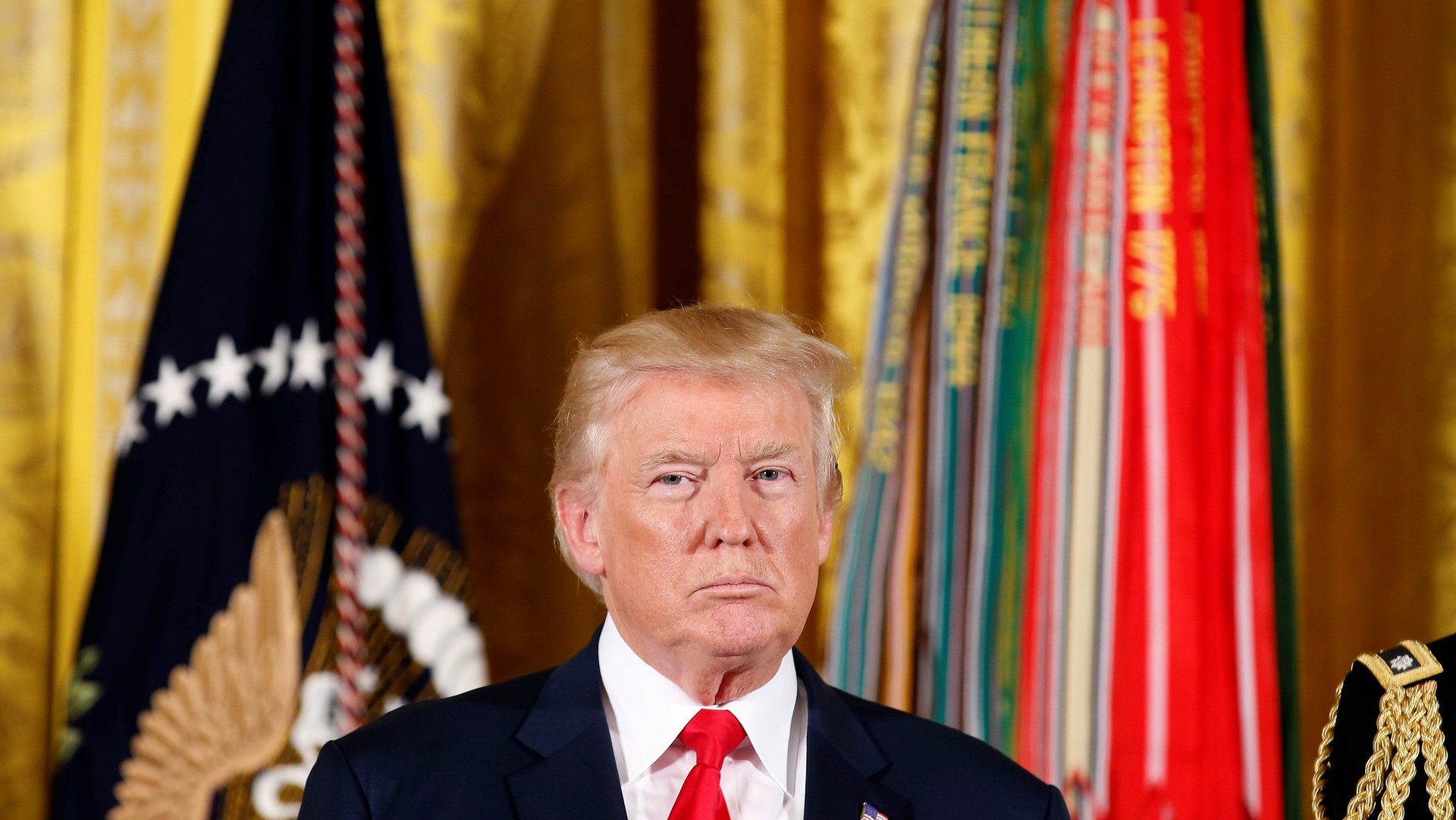Trump wouldn’t need a trade war with China if he’d stayed in the TPP trade deal
The White House has a plan to deal with all those pesky Chinese companies stealing Americans’ hard-earned intellectual property. It will impose tariffs on Chinese imports or revoke some Chinese companies’ licenses to sell products in the US, according to multiple reports.


The White House has a plan to deal with all those pesky Chinese companies stealing Americans’ hard-earned intellectual property. It will impose tariffs on Chinese imports or revoke some Chinese companies’ licenses to sell products in the US, according to multiple reports.
The Chinese problem of copycat products, names, and ideas is so egregious that Shenzhen’s factories can be mass-producing copies of a brilliant Kickstarter idea before it is even fully funded, and one of China’s largest companies, Tencent, distributed Mad Shelia, a flagrant rip-off of the blockbuster movie Mad Max, last year, streaming it online. Pirated software, counterfeit goods, and theft of trade secrets cost the US economy as much as $600 billion a year, according to the bipartisan Huntsman commission (pdf).
Under the Trans-Pacific Partnership, or TPP, China would have been forced to crack down on these types of imitations, as well as bring tariffs in line with those of other countries, and strengthen its environmental regulations to be more like those of developed countries—all measures that might have made the cost of manufacturing more in the US more competitive. But the complicated, far-reaching trade deal negotiated by Barack Obama’s administration was a common punching bag of US president Donald Trump on the campaign trail, and he pulled the US out of it just three days after his inauguration.
The TPP was intended to give countries a counterbalance to China’s growing dominance in world trade. It would have “absolutely” been tough on China’s intellectual-property violations, said Christopher Balding, a professor of political economics at Peking University. Among other things, “companies and countries could sue sovereigns and have the cases heard by courts not controlled by the sovereign,” he said. “In other words, if Nike sued China, it wouldn’t be heard in a Chinese court.”
Chinese courts have been notoriously lenient on Chinese companies that steal trademarks or designs from foreign companies, and tough on foreign challengers. Apple, for example, was forced to pay $60 million (paywall) to a Shenzhen company to gain control of the “IPAD” name, which the Shenzhen company had registered. Despite this, China was expected to sign on to the deal eventually, because it would have created a giant trading bloc that could have helped its economy keep growing.
The TPP is dead, so what’s the point of dwelling on that past? Only to point out that there’s a destructive pattern at work here. The Trump White House, particularly on trade, has failed to consult or rely on the deep knowledge of the State Department and other experts who have been grappling with the difficult issues and negotiating with foreign governments for years. Instead, the administration is crafting China trade policy by relying on a group of advisors who have little experience on the issue and an often outdated view of China.
The end result could be a trade war with China, one that would hurt a diverse group of US businesses and industries from soybean farmers to casino owners.